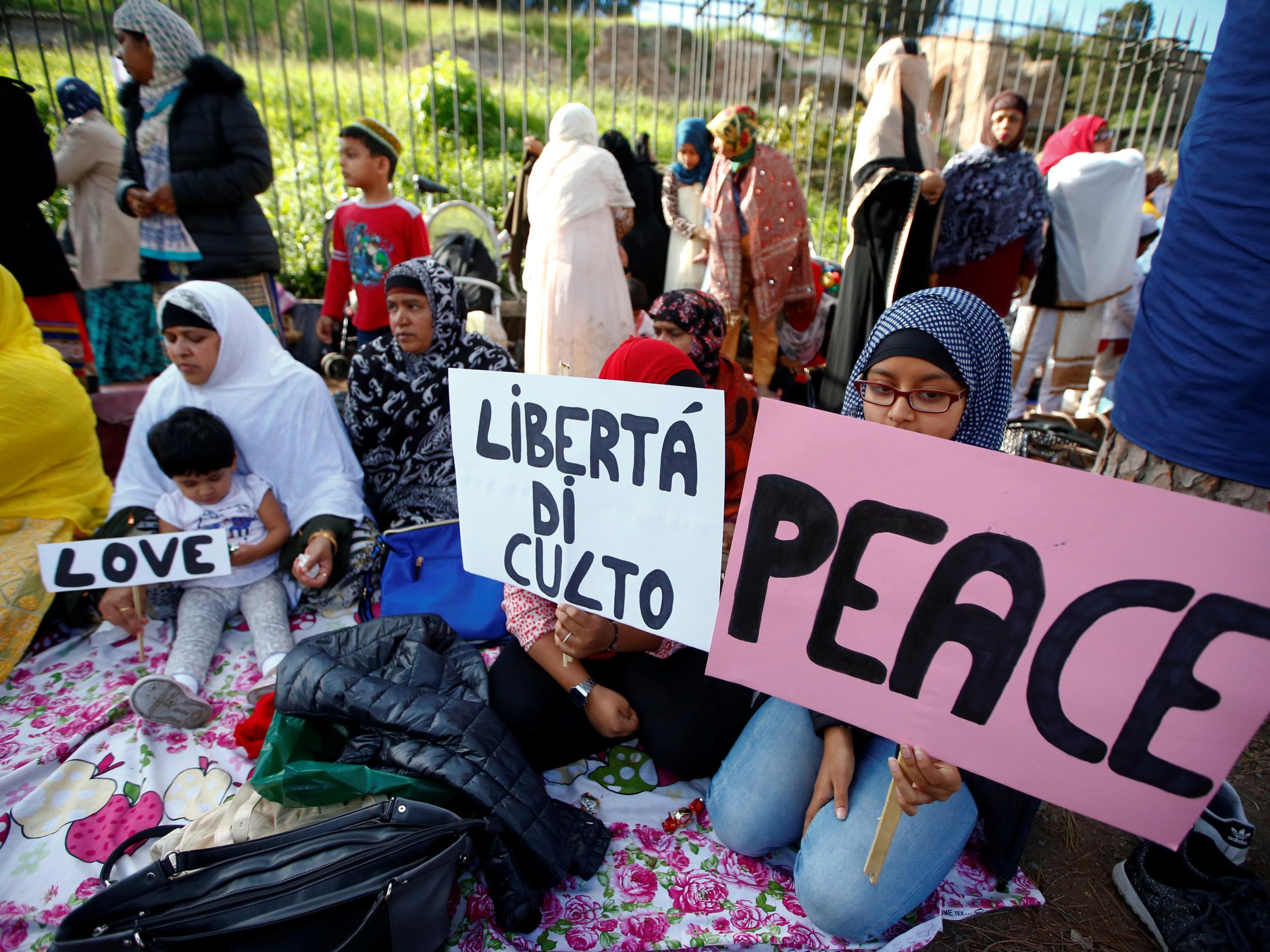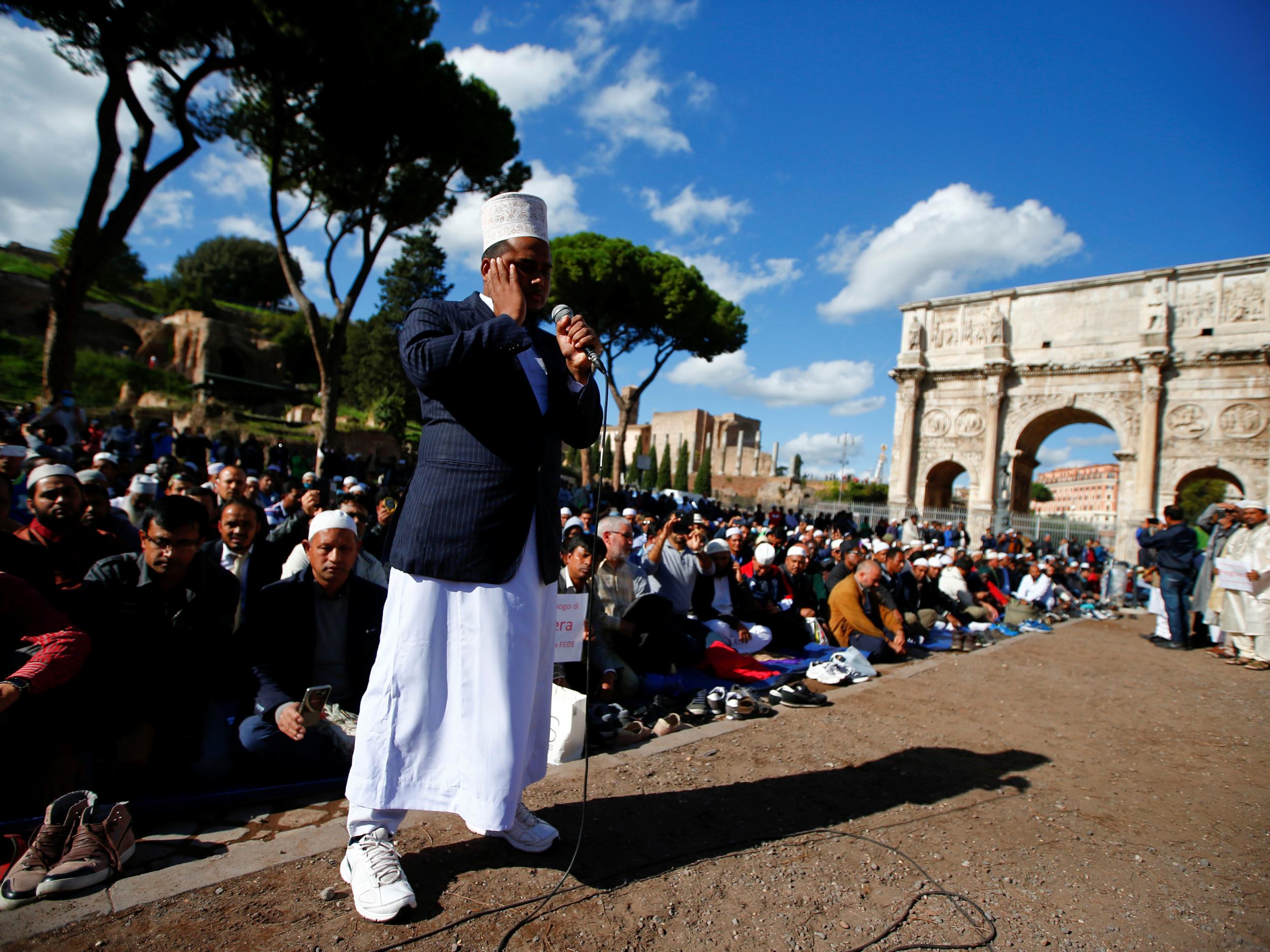Italy to train Muslim imams on constitution to 'create climate of tolerance' and fight radicalisation
Interior ministry funding courses for preachers from Islam and other 'unofficial' religions

Muslim imams in Italy are being enrolled on courses aiming to “create a climate of tolerance” and fight radicalisation by learning about the country’s constitution.
The interior ministry is funding the training, aiming at non-Catholic religious leaders and those from other countries planning to work in Italy.
It will start in February in Ravenna, a northern Italian city from where an aspiring jihadi foreign fighter was deported to Tunisia last week.
The programme is being run with the University of Bologna, whose course director said all religions that have not been officially recognised by the Italian state – including Islam – were welcome to join.
Professor Giovanni Cimbalo told La Repubblica: “The aim is to foster a dialogue between religions and cultures, contributing to the construction of a peaceful and non-violent society."
He said the course would respect the diverse denominations within Islam, as well as across Christianity and other religions.

Attendees will be taught about the Italian constitution, including freedom of religion and speech, as well as the “rights and duties inherent in our democratic societies”.
More practical instruction will focus on the process of setting up new places of worship, following protests over the closure of makeshift mosques last year.
Despite having an estimated 1.6 million followers in Italy, Islam is not an officially recognised religion and the country has only a handful of registered mosques.
With few official places of worship, many Muslims pray in houses and some 800 cultural centres and prayer rooms in the country, but right wing parties have claimed this makes religious sites hard to monitor and increases the risk of radicalisation.
The new courses, to be taught at six universities including Pisa and Florence, are part of a €92,000 (£80,000) interior ministry programme to improve integration and prevent extremism.
It comes amid heightened security in Italy, which has come under the spotlight following revelations the Berlin Christmas market attacker was radicalised in its prisons.
Authorities attempted to deport Anis Amri after he served a jail sentence for arson in Italy but a diplomatic dispute with Tunisia left him free to continue his journey to Germany.
Police in Rome issued a new arrest warrant for an inmate who allegedly tried to radicalise fellow Muslims in Italian prisons on Tuesday, while enhanced monitoring of jails continues.
The role of Islam in Italian society has been a hot topic following terror attacks across Europe and the refugee crisis, which saw more than 330,000 migrants from Africa, the Middle East and Asia arrive by sea in Italy over the past two years.
In January 2016, the government announced a new council of “Italian Islam” claiming to bring the religion into compliance with the country’s “Christian and humanist tradition”.
Former interior minister Angelino Alfano said the Council of Relations with Italian Islam would be an advisory body aiming at furthering integration.
Join our commenting forum
Join thought-provoking conversations, follow other Independent readers and see their replies
Comments